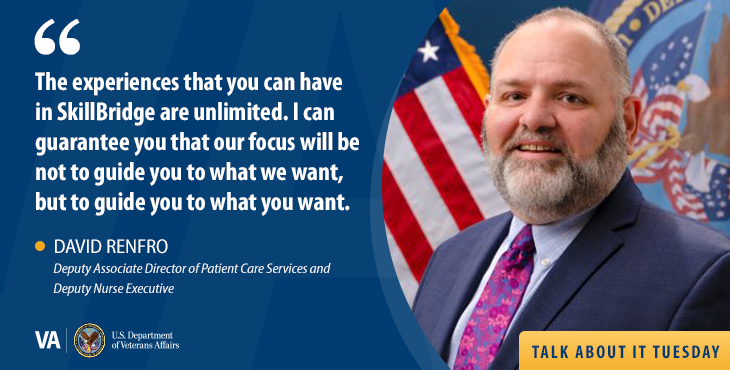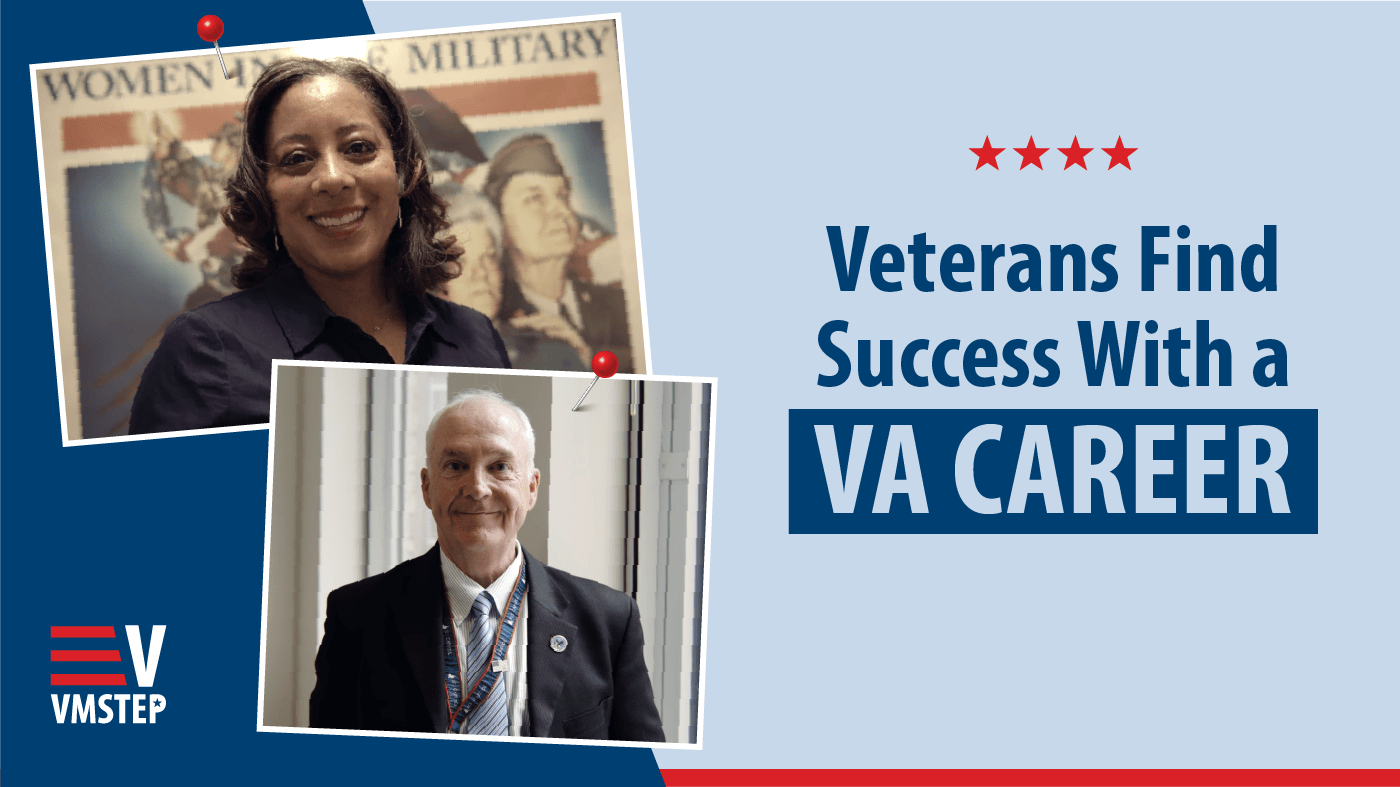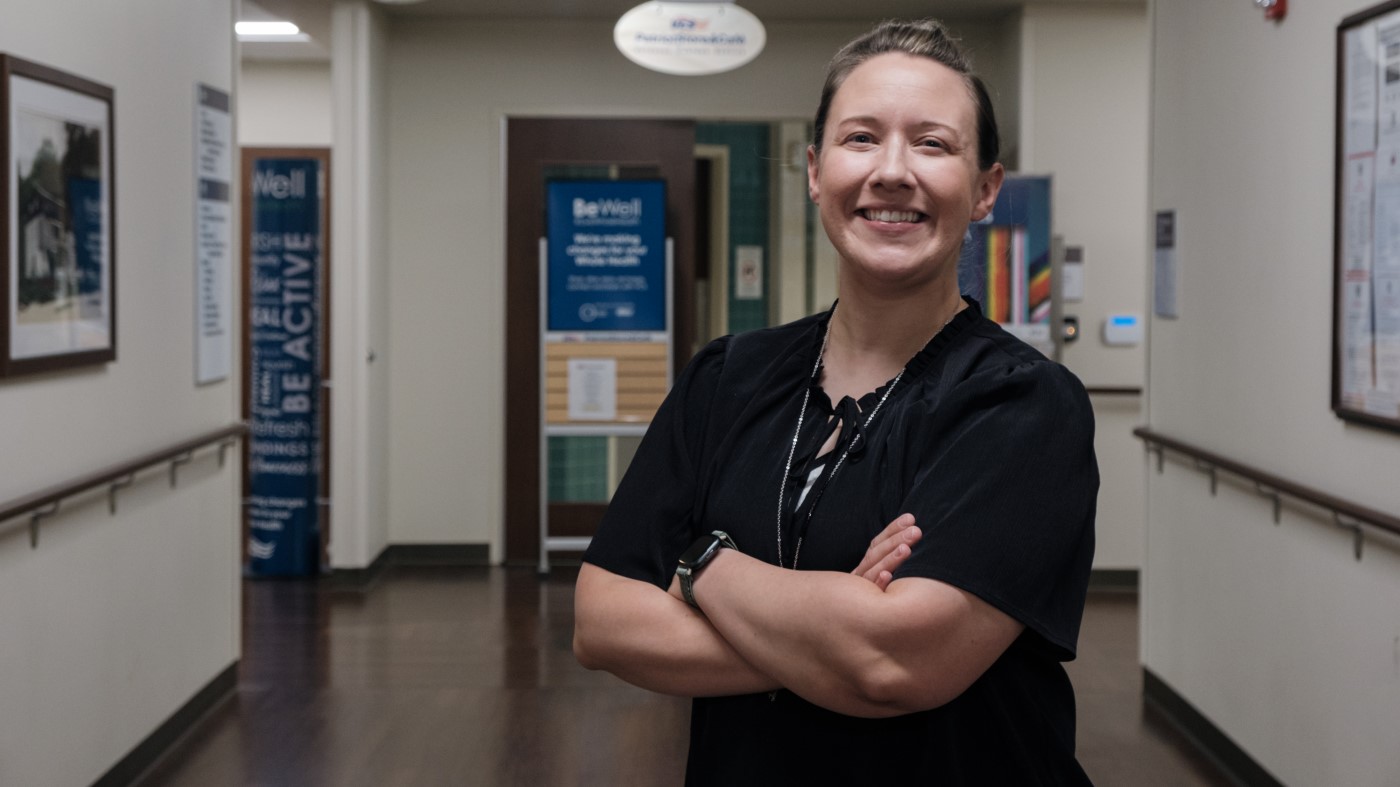Military medics and corpsmen can step right into fulfilling careers caring for fellow Veterans through VA’s new partnership with the Department of Defense SkillBridge program.
David Renfro recently discussed SkillBridge on our “Talk About It Tuesday” career live broadcast, which airs on LinkedIn every Tuesday at noon ET.
“It really is geared at helping [medics and corpsmen] transition from their active-duty role, taking all those skills they learned and helping them translate to a job that is ready for them today,” said Renfro, deputy associate director of patient care services and deputy nurse executive at the VA Palo Alto Health Care System.
Transition to a post-military career
Finding fulfilling post-military careers that use their health care skills can be difficult for these experienced professionals, who have plentiful experience but no professional licensure.
“It causes medics and corpsmen a lot of distress when they get out,” Renfro said. “They have this high level of skill, and they’re not able to translate that to anything meaningful to them.”
SkillBridge can help prevent that from happening. During the last 180 days of military service, medics and corpsmen accepted into SkillBridge are placed in residencies at VA to train as intermediate care technicians (ICTs).
The residency includes a comprehensive training program, mentoring, coaching, job shadowing and more. A state-of-the-art virtual simulator allows them to practice skills like suturing, splinting and casting.
“The experiences that you can have in SkillBridge are unlimited. I can guarantee you that our focus will be not to guide you to what we want, but to guide you to what you want,” Renfro said.
An integral part of the health care team, ICTs often begin their careers in the emergency department, but there also are opportunities to branch off into other disciplines, such as geriatrics, specialty care and primary care.
“We are going to coach you and mentor you and make sure the shoe fits tight,” Renfro said. “We’re going to make the program work for you.”
Cutting edge health care
Renfro sees the chance to become familiar with VA as the biggest benefit to completing a SkillBridge residency.
“For our country to have a program for Veterans that is so holistic, so forward thinking, so at the tip of technology, it’s fulfilling for everyone who works there,” Renfro said.
It didn’t take long for Renfro to feel at home at VA — in fact, he felt it the minute he walked through the doors to drop off his medical records after leaving the military. He decided then and there that VA was the place for him. He started out as a licensed practical nurse in the Palo Alto emergency department; earned his associate’s, bachelor’s and master’s degrees; and worked his way up through the ranks.
“What a thrill and what a ride. It feels like two or three years, but I got off active duty in 1989. VA has kept me busy,” Renfro said.
“I love VA because it is so much like the military,” he added. “It is one seamless program just like when we were on active duty. It does make you feel like you’re connected across the country.”
Work at VA
A SkillBridge residency can help you gain the practical experience you need to land an ICT position at VA.
- LEARN more about SkillBridge.
- WATCH Renfro’s full interview.
- EXPLORE the ICT program at VA.
- CONTACT Kristina Snell to learn more about the ICT program.
Topics in this story
More Stories
Native American and Alaska Native Veterans deeply enrich our country, and we proudly honor their service.
When planning for your future outside of the military, consider a career with VA like Bradley Page and Dana Jones, who have found successful careers on our team.
Nurse practitioners have an array of options when they work at VA, from engaging specializations to diverse care environments.






